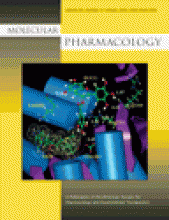Abstract
SN1-alkylating agents, such as the mutagenic and cytotoxic drug N-methyl-N′-nitro-N-nitrosoguanidine (MNNG), robustly activate the DNA damage-responsive G2 checkpoint. Establishment of this checkpoint is dependent on a functional mismatch repair (MMR) system; however, exposure to high doses of MNNG overrides the requirement for MMR to trigger G2 arrest. In addition, unlike moderate-dose exposure, in which the G2 checkpoint is attenuated in ataxia-telangiectasia, mutated (ATM)-deficient cells, high-dose MNNG treatment activates G2 arrest through an ATM-independent mechanism. We document that this arrest is sensitive to the pharmacological agents caffeine and 7-hydroxystaurosporine (UCN-01) that inhibit the checkpoint kinases ATM/ATM and Rad-3–related (ATR) and Chk1/Chk2, respectively. Furthermore, these agents block inactivation of the cell-cycle regulatory molecules Cdc25C and Cdc2, establishing the downstream mechanism through which high-dose MNNG establishes G2 arrest. Activation of both Chk2 and Chk1 was independent of ATM and MMR in response to high-dose MNNG, unlike the response to moderate doses of this drug. Chk2 was found to be dispensable for cell-cycle arrest in response to high-dose MNNG treatment; however, ATR deficiency and decreased Chk1 expression forced by RNA interference resulted in diminished checkpoint response. These results indicate that MNNG activates the G2 checkpoint through different mechanisms activated in a dose-dependent fashion.
- Received April 18, 2005.
- Accepted June 30, 2005.
- The American Society for Pharmacology and Experimental Therapeutics
MolPharm articles become freely available 12 months after publication, and remain freely available for 5 years.Non-open access articles that fall outside this five year window are available only to institutional subscribers and current ASPET members, or through the article purchase feature at the bottom of the page.
|






